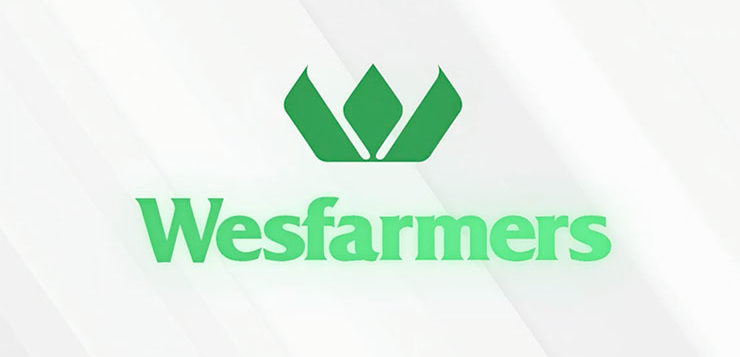DON’T MISS ANYTHING! ONE CLICK TO GET NEW MATILDA DELIVERED DIRECT TO YOUR INBOX, FREE!
Wesfarmers provided a detailed response to a set of questions posed by New Matilda, in relation to $15 million in funding provided to the corporate giant by the Morrison Government the day before the 2019 federal election.
You can read that story in full here, and you can read New Matilda’s questions and Wesfarmers’ response below.
1.Can Wesfarmers confirm it has applied for and received $15 million in Commonwealth funding in relation to Indigenous employment programs?
Wesfarmers and the Department of Prime Minister and Cabinet have recently signed an agreement for up to $15.3 million of funding over four years to support the employment, retention and career development of an additional 1,585 Aboriginal and Torres Strait Islander team members across Wesfarmers’ businesses (which include Bunnings, Kmart, Target, Officeworks, Wesfarmers Chemicals, Energy and Fertilisers, Blackwoods and Workwear Group).
The funding will be phased and is contingent on Wesfarmers’ success in recruiting and retaining new Indigenous team members. Funding is directly linked to individual recruitments and will be paid only when recruits have completed their first six months of employment of at least 15 hours a week. Wesfarmers businesses will be fully paying the wages of all new recruits under the program, as it does with all other team members.
2. Indigenous organisations all over the country have either been defunded, had their funding cut, or are struggling to attract realistic levels of funding. Given Wesfarmers announced a half yearly profit of around $4.5 billion in December 2018, what does it say to critics who suggest it’s inappropriate for your corporation to also take $15 million in government assistance out of money set aside to alleviate Indigenous disadvantage?
One of the most significant ways to alleviate Indigenous disadvantage is through providing meaningful and sustained employment, and Wesfarmers is uniquely positioned because we are a direct employer and have a huge number and variety of jobs in our varied businesses across Australia, including in regional Australia. We are not in a position to comment on other funding decisions but this program is aimed at working with communities and government to accelerate the creation of employment and development opportunities for First Australians, with a focus on retention.
It will be utilised to support areas such as programs for highly disadvantaged community members and mentoring programs to assist in additional bespoke support for Indigenous team members, including in regional and remote areas. Importantly, the funding is all outcome-based.
3. Why does Wesfarmers not spend some of its $4.5 billion half yearly profit, rather than access Indigenous-specific funding?
This program provides seed funding to re-launch Indigenous employment across the Wesfarmers group, following the demerger last November of Coles. Wesfarmers will employ 14 dedicated Indigenous recruitment and employment specialists and advisers at Group level and embedded within our businesses to establish processes and accelerate recruitment, development and retention of Indigenous team members.
We hope and intend that by the time this program is completed, the Group will have tested, established processes which will allow our businesses to include high levels of Indigenous employment and career development as part of their normal course of business. At the time of the demerger, Coles was Australia’s biggest employer of Indigenous Australians, with 4700 Indigenous team members – importantly, it also initially accessed Government funding to set out on the path which eventually got it to that point.
It is also worth noting that Wesfarmers paid more than $2.1 billion dollars in taxes and royalties in the 2018 financial year, and is regularly one of Australia’s biggest taxpayers. In 2018, we also spent more than $20 million on programs and initiatives that support Indigenous employment, procurement and the preservation of Aboriginal and Torres Strait Islander culture.
4. How many Indigenous people does Wesfarmers now employ?
Wesfarmers currently employs more than 1,700 Aboriginal and Torres Strait Islanders across our businesses, following the demerger of Coles last November, or around 1.8% of our total workforce. Coles in its own right has become the largest private sector employer of Indigenous Australians with 4,200 Indigenous team members, or at least population parity. Wesfarmers intends to replicate the same success in Indigenous employment across the remaining businesses of our Group.
5. According to the terms of the grant, the money in particular is to be directed towards remote Indigenous employment and development of Indigenous businesses. Can Wesfarmers outline in more detail how this grant funding will be spent to meet those requirements?
Wesfarmers has businesses and operations across Australia, including in regional and remote areas, which can provide both employment for Indigenous people and procurement opportunities for Indigenous businesses.
Nearly half of the total Indigenous recruitment is focused on regional employment opportunities, while more than half will be aimed at students and young people with the aim of avoiding them entering the long term unemployment system.
An important element of this program is to locate a number of our Indigenous recruitment specialists in key remote centres identified for Indigenous employment (e.g. north Queensland and regional Western Australia). The funding will be utilised to support employment and retention in regional areas, including a focus on disadvantaged job seekers and providing employment for high potential Indigenous team members to have career development opportunities.
6. Can Wesfarmers understand why Aboriginal organisations which have struggled to attract government support would be angered by the decision to award a company that turns over more than $60 billion a year $15 million in direct government assistance? If yes, can you elaborate further?
As we said above, one of the most significant ways to alleviate Indigenous disadvantage is through providing meaningful employment, and Wesfarmers is powerfully positioned to do something in this area because of the number and variety of jobs we have in our varied businesses across Australia.
We are not in a position to comment on other funding decisions. This program provides seed funding to re-launch Indigenous employment across the Wesfarmers Group. We hope and intend that by the time this program is completed, the Group will have tested, established processes in place which will allow our businesses to include high levels of Indigenous employment and career development as part of their normal course of business. Importantly, any funding under this program is linked to successful outcomes. Funding is directly linked to individual recruitment and will be paid only when new recruits have completed their first six months of employment. Wesfarmers businesses will be fully paying the wages as well as learning and development of all new recruits under the program, as it does with all other team members.
As noted above, Wesfarmers last year spent more than $20 million on community programs and initiatives that support Indigenous development, procurement from Indigenous suppliers, and preservation of culture.
Donate To New Matilda
New Matilda is a small, independent media outlet. We survive through reader contributions, and never losing a lawsuit. If you got something from this article, giving something back helps us to continue speaking truth to power. Every little bit counts.




